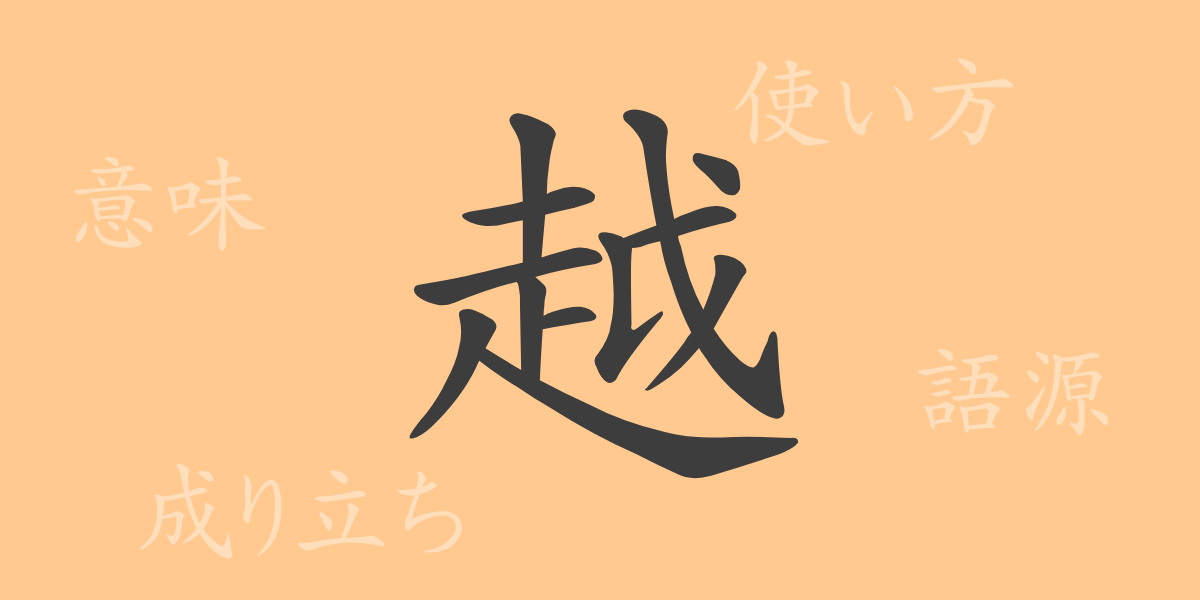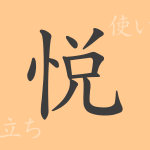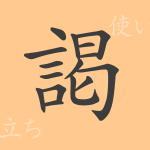“
The kanji “”越”” (Etsu) is deeply rooted in our daily lives as a common kanji. What kind of history does this single character have, and how have we used it? In this article, we delve into the origin, meaning, usage, reading, and even the compound words and idioms that use “”越,”” exploring its charm. While glimpsing the history contained in each kanji, let’s take a moment to appreciate the depth of the Japanese language.
The Origin of 越 (Etsu)
The kanji “”越”” originated in ancient China, and its shape represents the act of crossing over mountains. In the past, it was written as “”戉”” and was said to mean the name of a weapon, but over time, its meaning changed to crossing over geographical features. This transition reflects the increasing importance of overcoming geographical barriers as people’s lives and movements became more active.
The Meaning and Usage of 越 (Etsu)
“”越”” has meanings such as “”to exceed,”” “”to cross over,”” and “”to climb.”” It is often used when physically overcoming obstacles, but it can also be used metaphorically. For example, this kanji is used in expressions like “”困難を越える”” (Konnan -wo -ko-eru, overcoming difficulties) and “”年を越す”” (Toshi -wo -ko-su, crossing into a new year), where it represents surpassing concepts of obstacles or time.
Reading, Stroke Count, and Radical of 越 (Etsu)
Let’s take a closer look at the reading and structure of the kanji “”越””.
- Reading: The on’yomi reading is “”えつ”” (Etsu), and the kun’yomi readings are “”こす”” (Kosu) and “”こえる”” (Koeru).
- Stroke Count: 12 strokes
- Radical: 走部 (Soubu)
Compound Words, Idioms, and Proverbs Using 越 (Etsu) and Their Meanings
Here are some compound words, idioms, and proverbs that include “”越””:
- “”越前”” (Echizen) – The old province name for Fukui Prefecture. Used as a place name.
- “”時を越える”” (Toki -wo -ko-eru) – To transcend time.
- “”難を越える”” (Nan -wo- ko-eru) – To overcome difficulties.
- “”年を越す”” (Toshi- wo- ko-su) – To welcome the new year.
- “”心を越す”” (Kokoro -wo- ko-su) – To strengthen one’s resolve.
- “”金を越す”” (Kin -wo- ko-su) – To exceed a budget.
These compound words and idioms are expressions that make use of the meaning of “”to exceed”” that “”越”” possesses, demonstrating the richness of the Japanese language.
Conclusion on 越 (Etsu)
As can be seen from its shape, the kanji “”越”” symbolizes the power to overcome obstacles. In the Japanese language, it is a versatile kanji used not only in a physical sense but also when transcending temporal or psychological barriers. As seen in compound words and idioms, it is deeply ingrained in Japanese life and culture, and its usage can be found in a wide range of scenes. Through this article, we hope you have felt the depth of meaning that “”越”” holds and the richness of Japanese expressions.
“

























